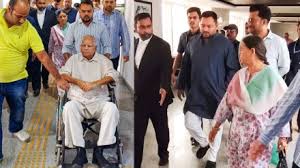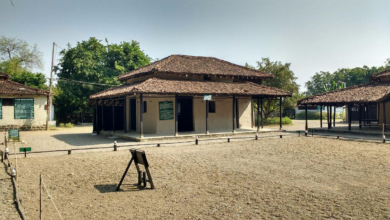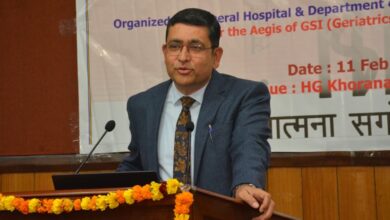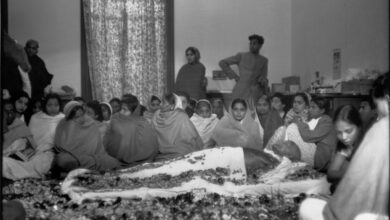Lalu Yadav, Corruption Charges, and Political Double Standards: What It Means for the Upcoming Assembly Elections
Lalu Prasad Yadav, the veteran Rashtriya Janata Dal (RJD) leader and former Chief Minister of Bihar, continues to face a series of corruption cases — some dating back nearly three decades. His legal troubles, combined with the broader debate on the selective use of investigative agencies, have once again come to the center of national political discourse ahead of the Assembly elections in Bihar and other states.
The Long Shadow of the Fodder Scam
The roots of Lalu Yadav’s legal troubles go back to the infamous fodder scam of the 1990s — a massive embezzlement of government funds meant for cattle fodder. The scam was exposed in 1995–96 through audits and media investigations, and the Patna High Court ordered a CBI probe in 1996.
At the time, H.D. Deve Gowda’s United Front government was in power at the Centre. Although the case originated under court supervision, political observers agree that rivalry within the Janata Dal — especially between Lalu and the Deve Gowda–I.K. Gujral faction — allowed the investigation to move forward without political protection.
Lalu’s eventual split from the Janata Dal and formation of the Rashtriya Janata Dal (RJD) in 1997 came directly in response to this crisis. While Lalu claimed political conspiracy, later court judgments confirmed large-scale fraud and misuse of funds, leading to his conviction in multiple cases.
Newer Cases and Continuing Trials
In recent years, Lalu and his family have been entangled in several other corruption and money-laundering cases:
The IRCTC Hotels case, alleging irregularities in awarding railway hotel contracts, saw fresh charges framed in October 2025.
The Land-for-Jobs case, dating back to his tenure as Railway Minister, accuses the family of receiving land transfers in exchange for employment in Indian Railways.
His wife Rabri Devi and son Tejashwi Yadav are co-accused in several of these matters.
Although Lalu has been granted bail in most of the fodder scam cases due to age and health, the ongoing investigations keep the political heat alive.
Selective Use of Agencies: Opposition’s Charge
Opposition leaders argue that investigative agencies like the CBI and ED are being used selectively against non-BJP politicians.
Many point to leaders such as Ajit Pawar, Himanta Biswa Sarma, and Suvendu Adhikari, who faced corruption probes before joining the BJP — only for those investigations to cool off once they switched sides.
In contrast, the RJD, AAP, and Trinamool leaders continue to face active prosecution or arrest.
This pattern has strengthened the opposition’s claim that India’s anti-corruption machinery is now a political weapon, used to pressure or neutralize rivals.
How It Impacts Upcoming Assembly Elections
The revival of corruption charges against Lalu and his family could have mixed political consequences:
Sympathy and Consolidation:
Among RJD loyalists, the narrative of “political vendetta” may strengthen sympathy for Lalu’s family, particularly his son Tejashwi Yadav, who is positioning himself as a generational change within the RJD.
Credibility Challenge:
For undecided voters, especially the urban and youth segments, the repeated headlines of corruption and court trials may reinforce the BJP–JD(U) narrative that the RJD represents “jungle raj” and misgovernance.
Alliance Dynamics:
Within the INDIA opposition bloc, Lalu remains a senior strategist and mobilizer of backward-caste votes. However, prolonged legal battles may limit his direct campaigning ability — leaving the RJD’s performance dependent on Tejashwi’s leadership.
BJP’s Advantage:
The ruling alliance is likely to highlight these corruption cases as proof of the opposition’s “tainted leadership,” while deflecting questions about its own defectors from other parties.
Conclusion
The criminal cases against Lalu Prasad Yadav began under the Deve Gowda government amid internal Janata Dal rivalries, but the underlying corruption was real and proven in court.
Today, however, the continuing legal pressure on the RJD chief — contrasted with the immunity enjoyed by turncoat leaders — underscores the politicization of law enforcement in India.
As Bihar and other states head toward Assembly elections, the battle will not just be over governance and caste equations — but also over credibility, justice, and the perception of fairness in India’s democratic system.





